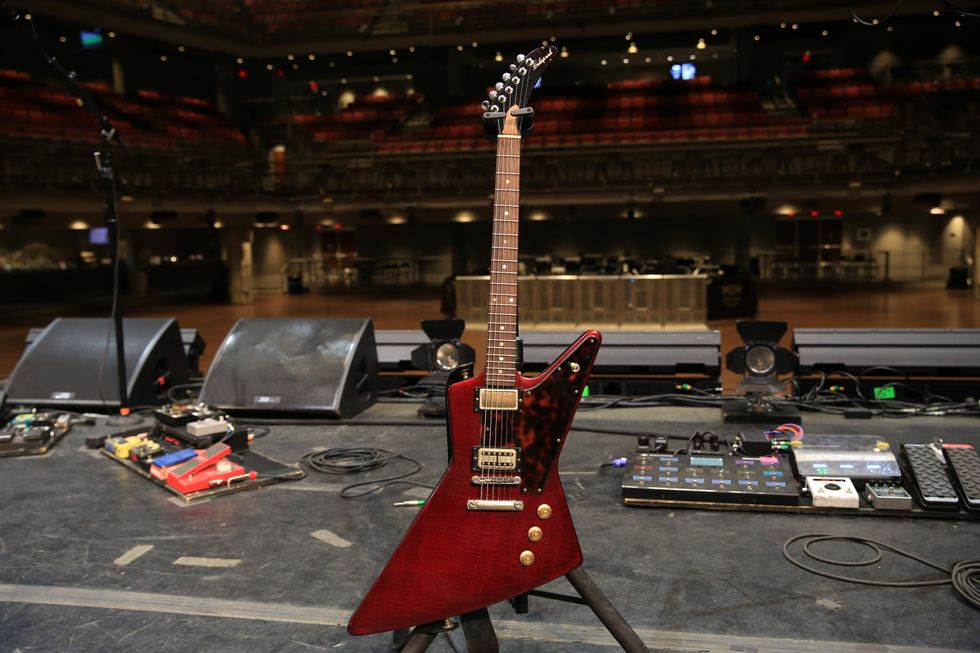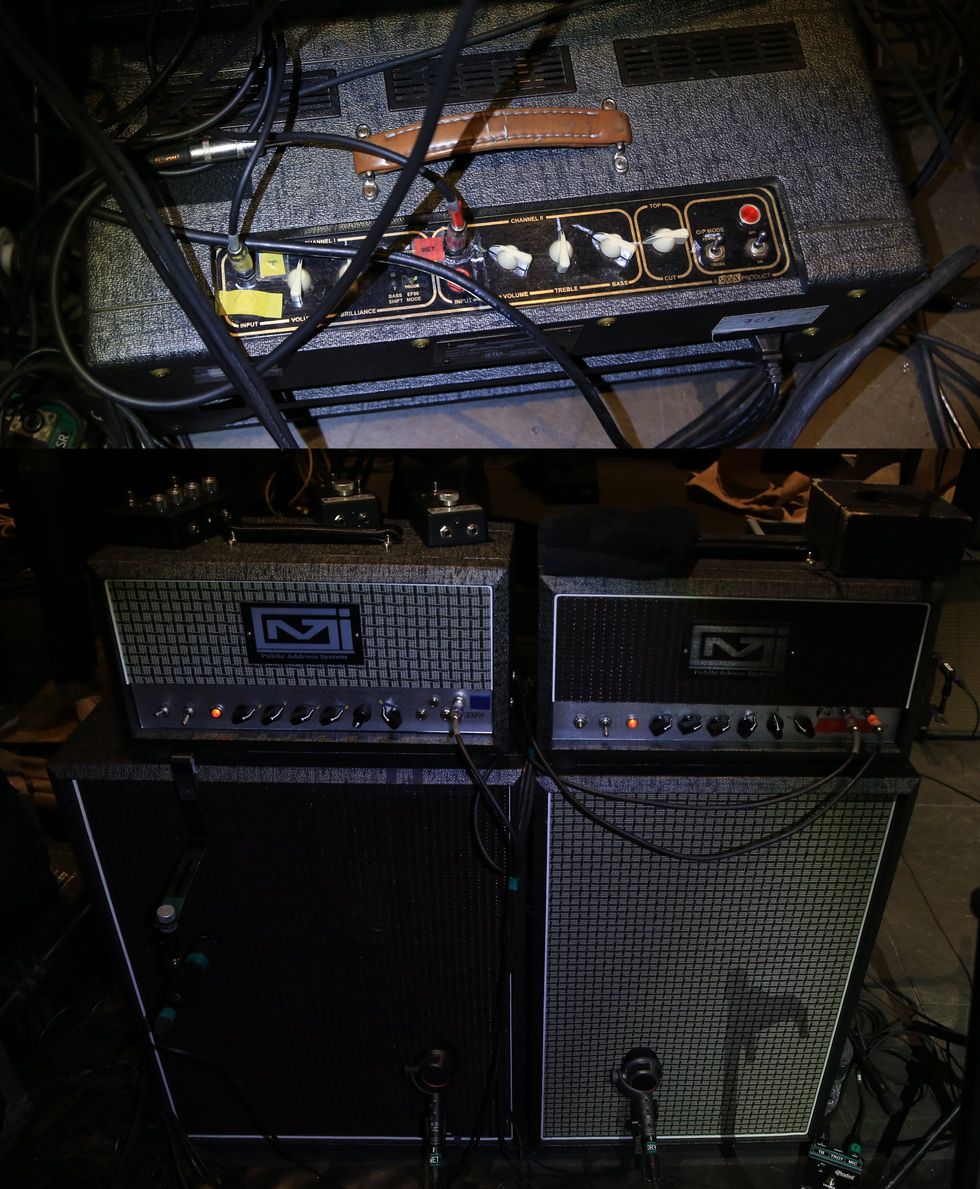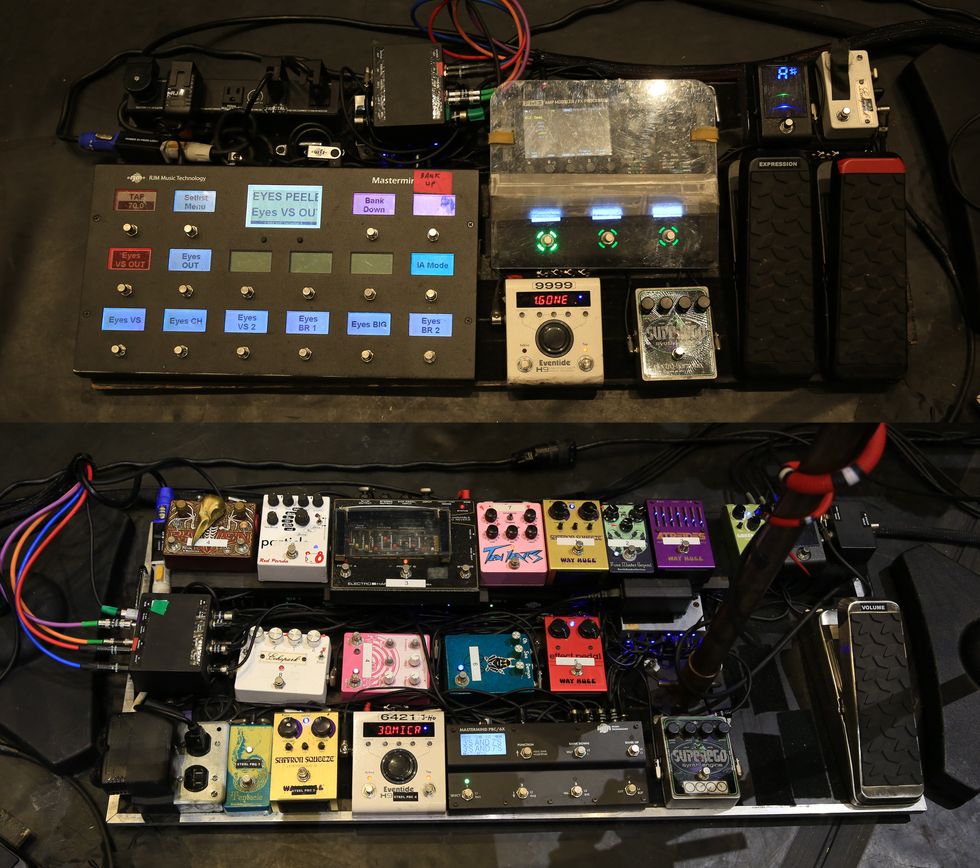When I was a kid, I thought The Song Remains the Same looked like pretty good fun. Donning dragon flares, walking the back forty of your Welsh farm, and playing hurdy gurdy with glowing eyes by your very own castle all seemed like excellent ways to while away your time. But none of the aforementioned activities looked quite as thrilling as being Jimmy Page, freaking out with the playback head slider on an Echoplex, driving Robert Plant to yowling insanity! That, I thought, was something to aspire to.
As my current post as Premier Guitar gear editor might suggest, I never got the castle. I did get the Echoplex though, and nearly ran the damn thing into the ground thrashing away at that playback head slider. If you’ve ever had the pleasure of going mad on your own Echoplex, it’s hard not to twitch a little at the sight of the delay time slider on Ibanez’s new Echo Shifter. Sure, there are hyper-powerful DSP delays that can replicate virtually imperceptible nuances of tape delay, but few can deliver the tactile delights of manipulating your delay with a slide control. And what’s cool about the Echo Shifter—which has an all-analog signal path, with the added flexibility of digitally controlled tap-tempo—is that it delivers all the bizarre, expressive power of a slider control plus a set of potentially freakish oscillation and manipulation controls that open up uncommon delay possibilities and sweet baseline echo tones—all at the going rate of much more conventional delays.
Micro Moogleplex!
While the Echo Shifter bears some clear
family ties to old Ibanez pedals like
the Standard Fuzz, Ibanez unabashedly
embraced mid- to late-’70s synth style in
designing the Echo Shifter. The knobs
are the same you’d find on a vintage Mini
Moog, and the wood side panels and graphics look lifted right from the Moog
playbook, too.
Controls are very logically and thoughtfully situated. Three knobs control feedback, mix, and depth. The first two are standard delay controls, while depth controls the intensity of the modulation function when you switch it on. The oscillation function dramatically increases the self-oscillation tendencies and sensitivity of the feedback control. But the centerpiece of the control set is the delay-time slider, which looks lifted from an old Ibanez Standard Fuzz. Two footswitches turn the effect on and off and enable tap-tempo functionality.
Freak Machine
While there’s no doubt the Echo Shifter
was built for getting weird, it’s a great
delay in the conventional sense. It delivers
clean analog repeats that are colored by an
organic and clear, if slightly boxy, tone as
they decay, including “Shine on You Crazy
Diamond”-style echo that could pass muster
with most Gilmour tone-o-philes.
Putting an aggressive fuzz or distortion before the Echo Shifter highlights the colder qualities of the repeats—especially if you like longer delay times. But the effect can be quite pleasing in short-delay situations—and for some, the high-end taper on the decays may be exactly what they want from an analog delay.
Ratings
Pros:
Super expressive controls provide a wide range of traditional and out-there sounds. Wonderfully intuitive design. Looks fantastic. Great value.
Cons:
Sensitive oscillation control could be a little less touchy.
Tones:
Ease of Use:
Build/Design:
Value:
Street:
$149
Company
ibanez.com
The Echo Shifter’s control interface feels intuitive in conventional settings, but it shines brightest when you probe the outer limits. The sensitivity and sweep of the feedback control, as well as the responsiveness of the delay-time slider, make the Echo Sifter an expansive playground for radical and explosive sounds that you can transform from insane to tame in a fraction of a second. The most out-there applications require moving fast—most likely with two hands. But one of the real upsides of the delay slider and its orientation is that you can manipulate it with your foot pretty readily, provided you don’t prefer platforms or thick-soled boots. And if you happen to jam barefoot and tend to be dexterous at the lower extremities, you’ll be surprised at the dramatic effects you can pull off with your big toe. You do have to mind the feedback control. And riding it from 50 to 80 percent and working the delay slider delivers cool flying-saucer-lift-off swells that teeter at the edge of self-oscillation.
At these highest reaches, the feedback knob is touchy, but with the oscillation switch on it becomes terrifyingly—and delightfully—temperamental. Just a nudge can cause speaker-blowing oscillation loops that balloon as fast and explosively as a nuclear blast over the Bikini Atoll. It’s delightful but it’s easy to lose control if your fingers and mind are elsewhere. The function would be a bit more musical if Ibanez split the difference between baseline gain and what you get when you flip the switch.
The modulation control uses pitch modulation to create lovely underwater warbles or tape-style wobble with the depth control at lower levels. Set depth all the way up, and the modulation detunes and returns to pitch somewhat like Freddie Tavares’ “Looney Tunes” pedal-steel intro.
The Verdict
If you’ve spent most of your guitar-playing
life pining for an Echoplex, only to find
the originals too expensive, and analog and
DSP approximations dissatisfying to operate,
the Echo Shifter just might be the fix.
You’d be hard-pressed to find a cooler-looking
pedal, and it sounds range from better
than average to excellent for an affordable
delay, depending on the application. But
it’s the smart layout and functionality of
the controls that make the Echo Shifter a
standout and help bridge the gap between
modern stompbox practicality and the
quirky joys of tape delay and analog synths.
And the street price of just 150 bucks is
more than fair for a thoughtfully designed
delay that covers so much ground—freaky
or otherwise.
Watch our video review:



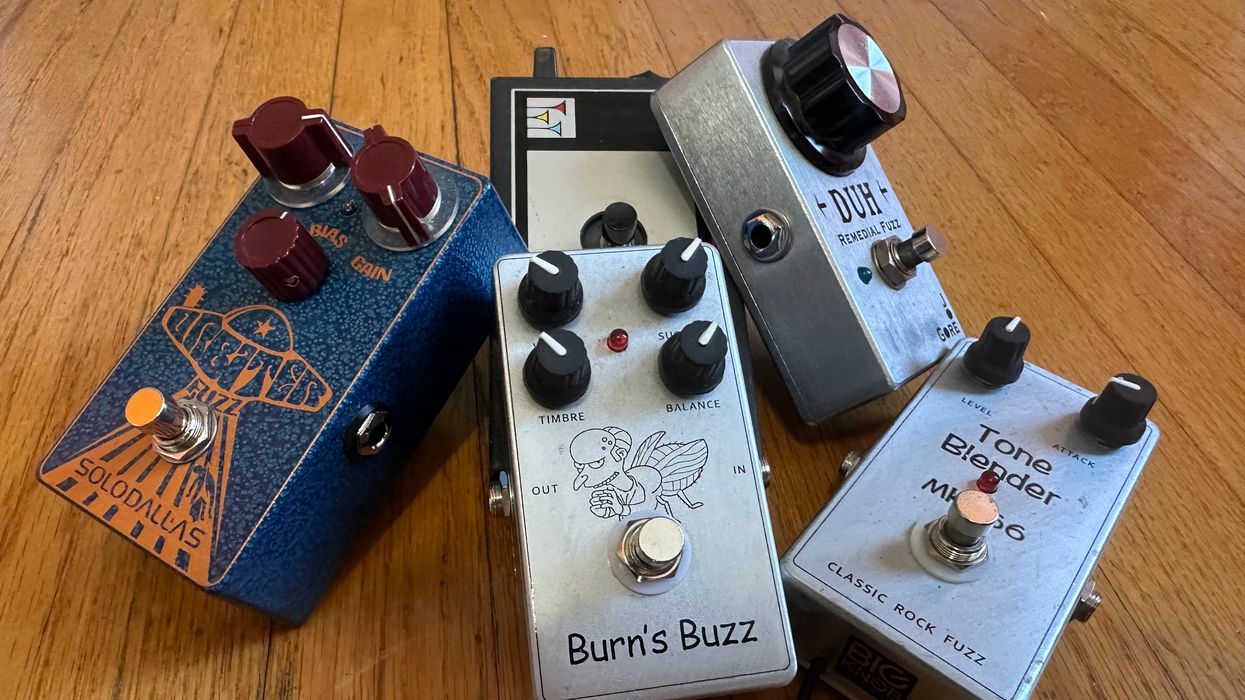




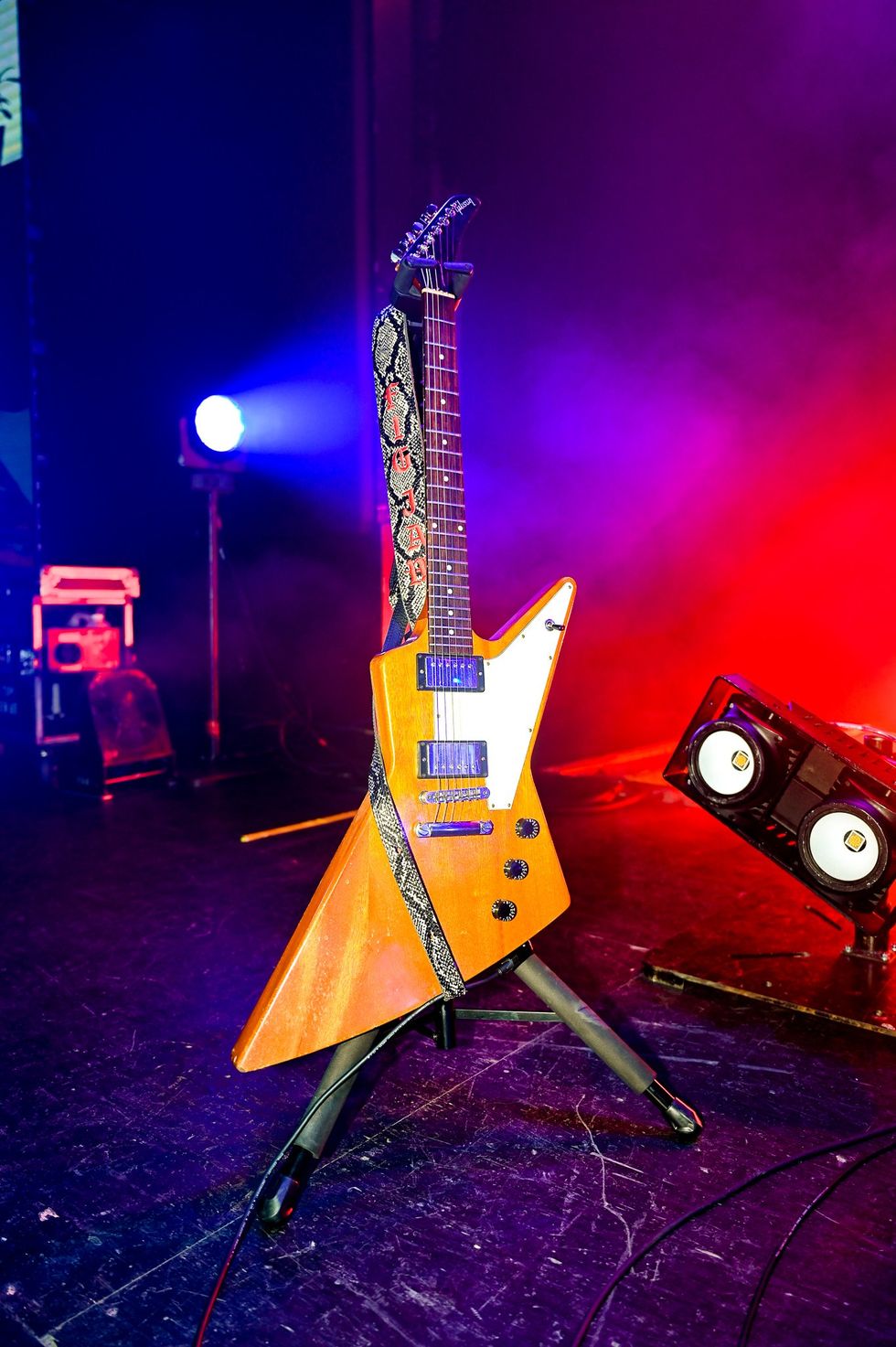
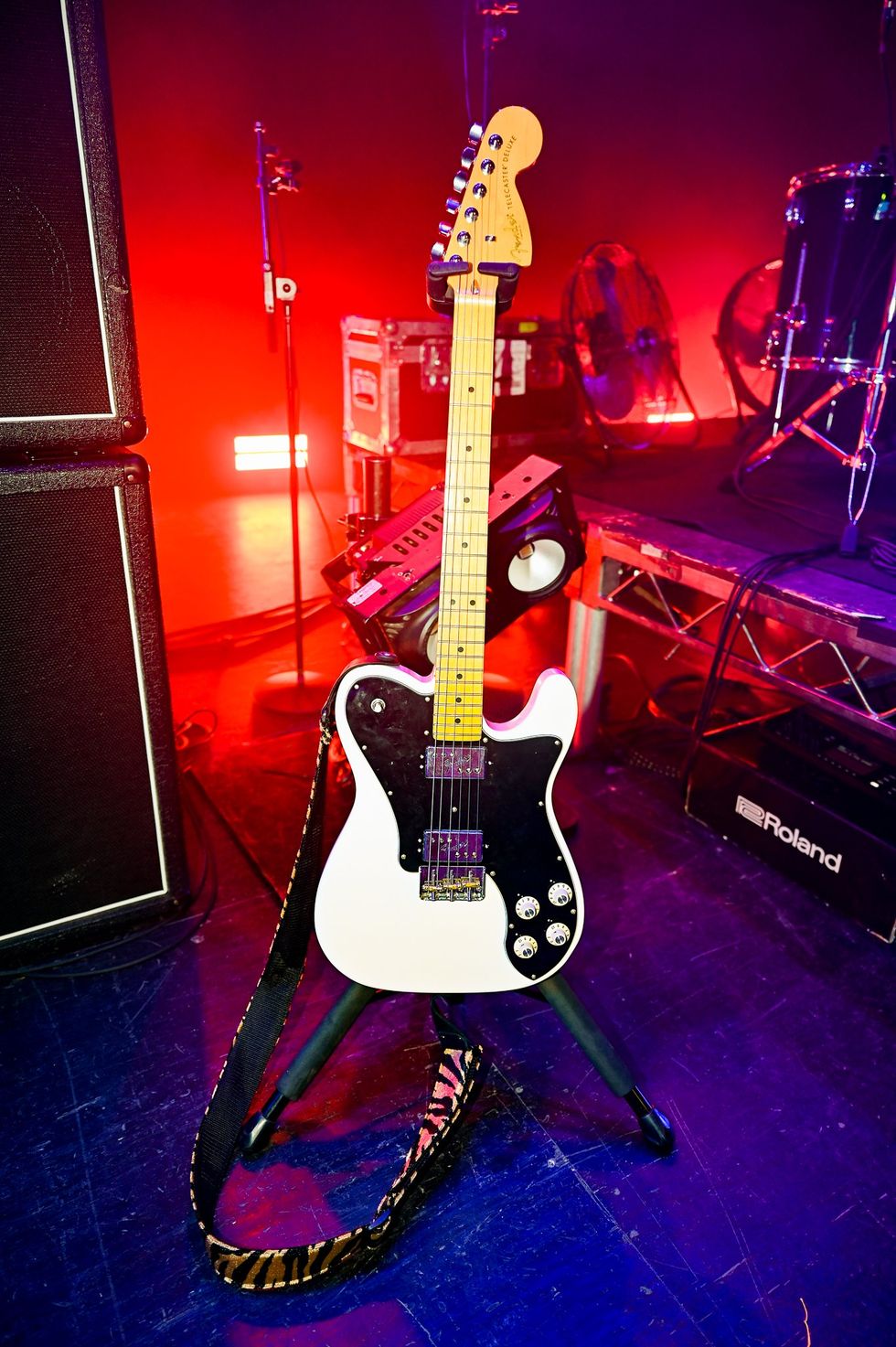
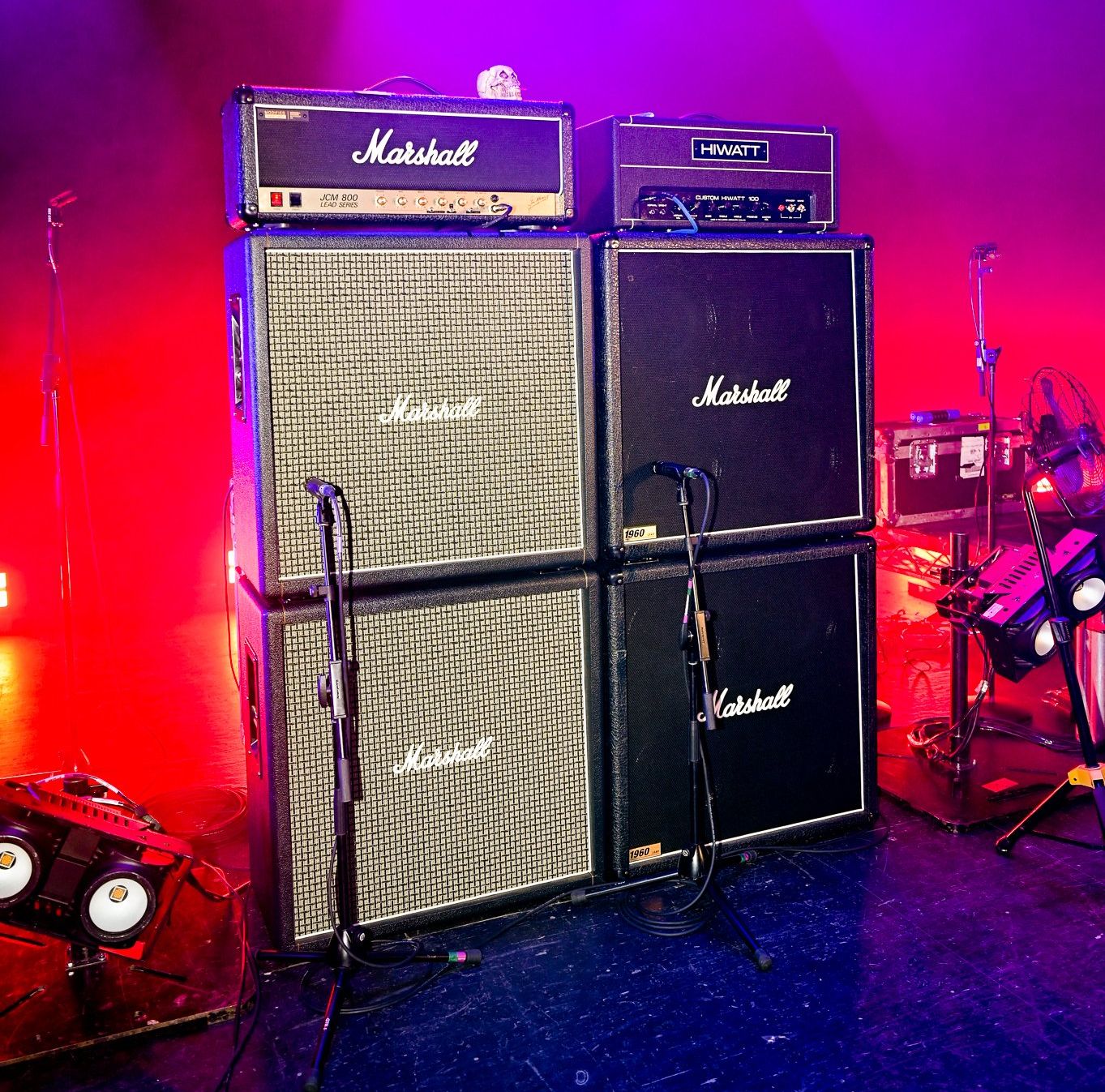
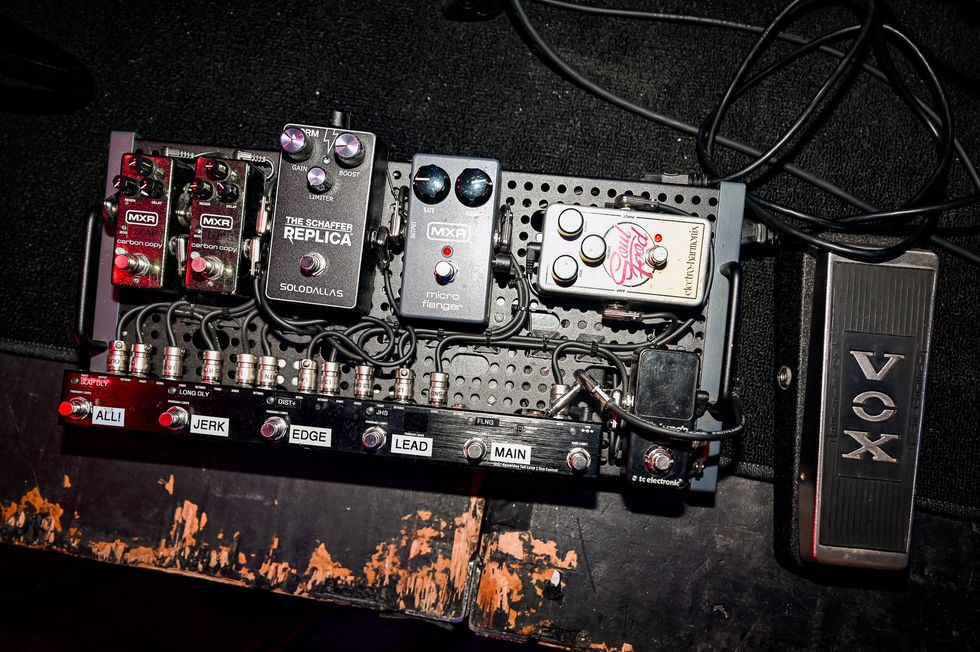
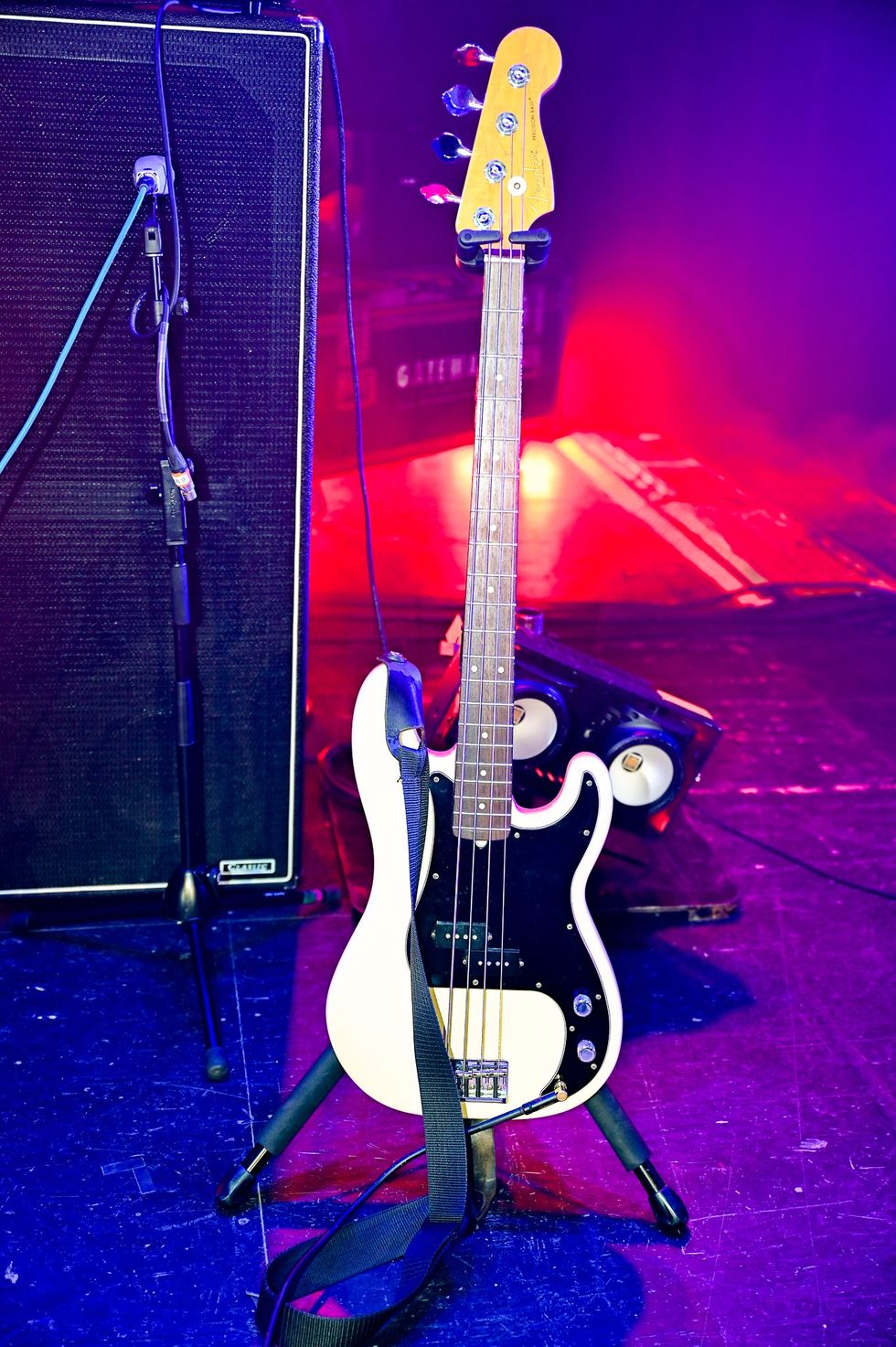
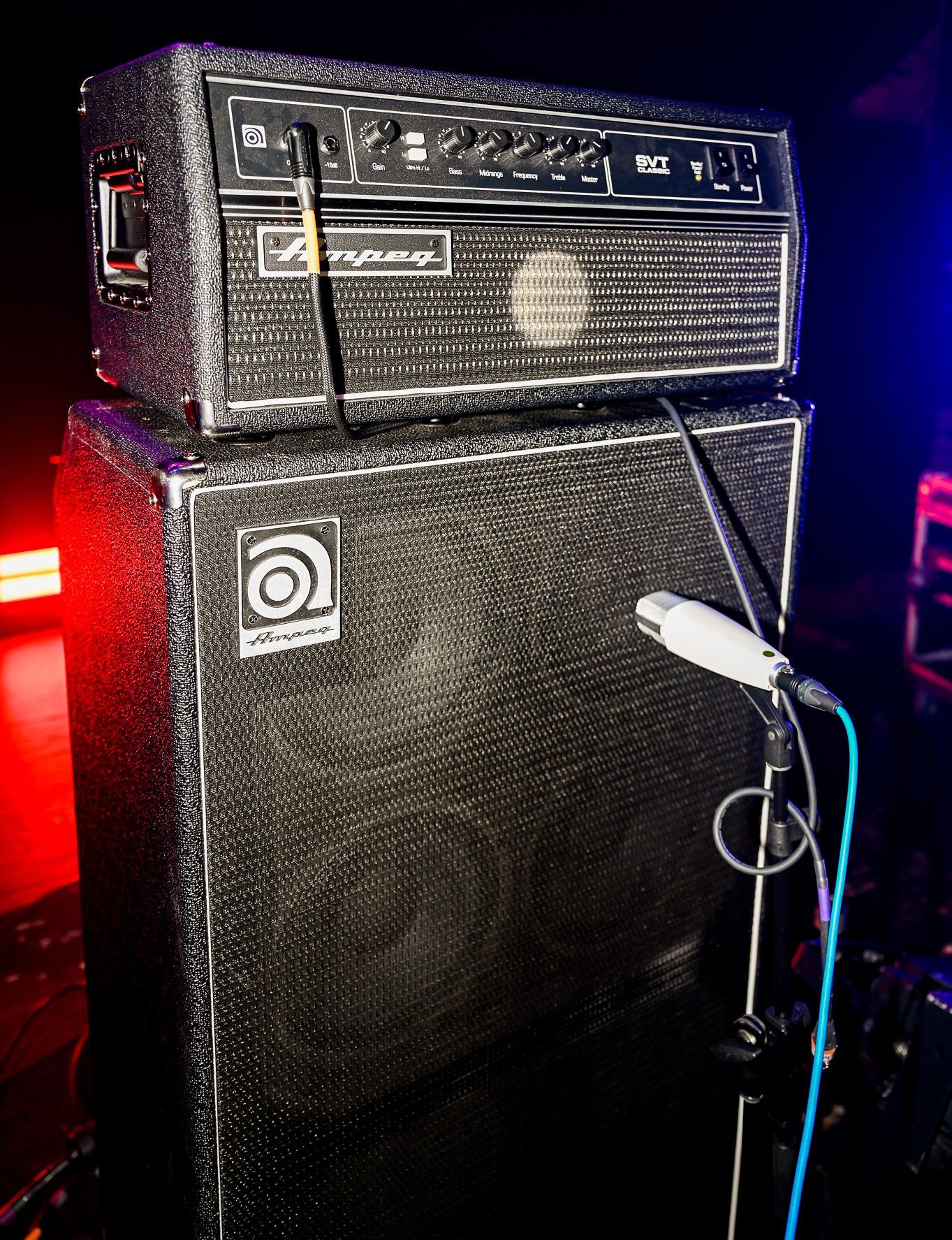
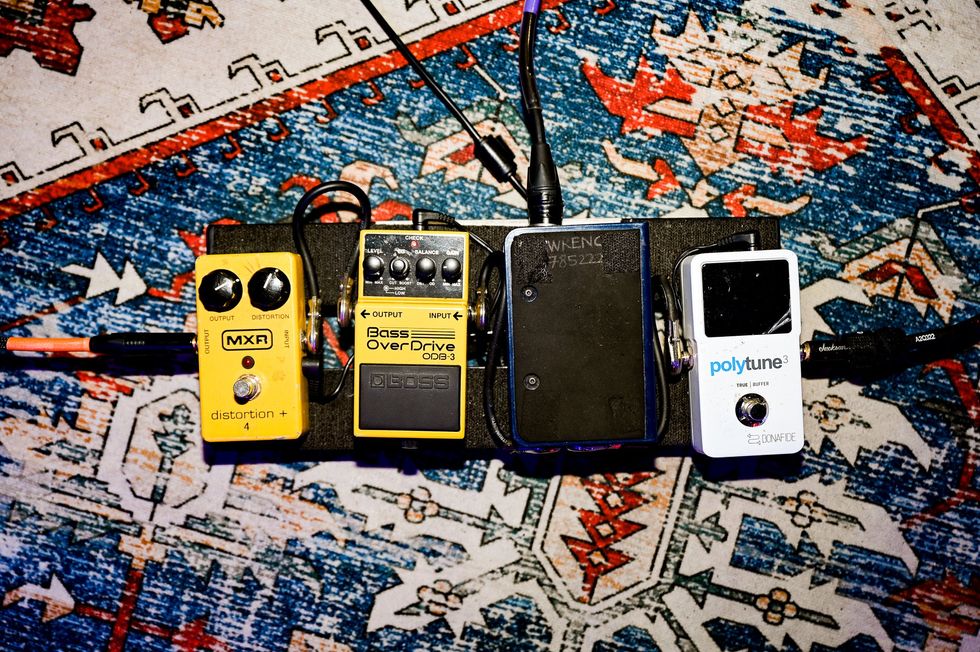


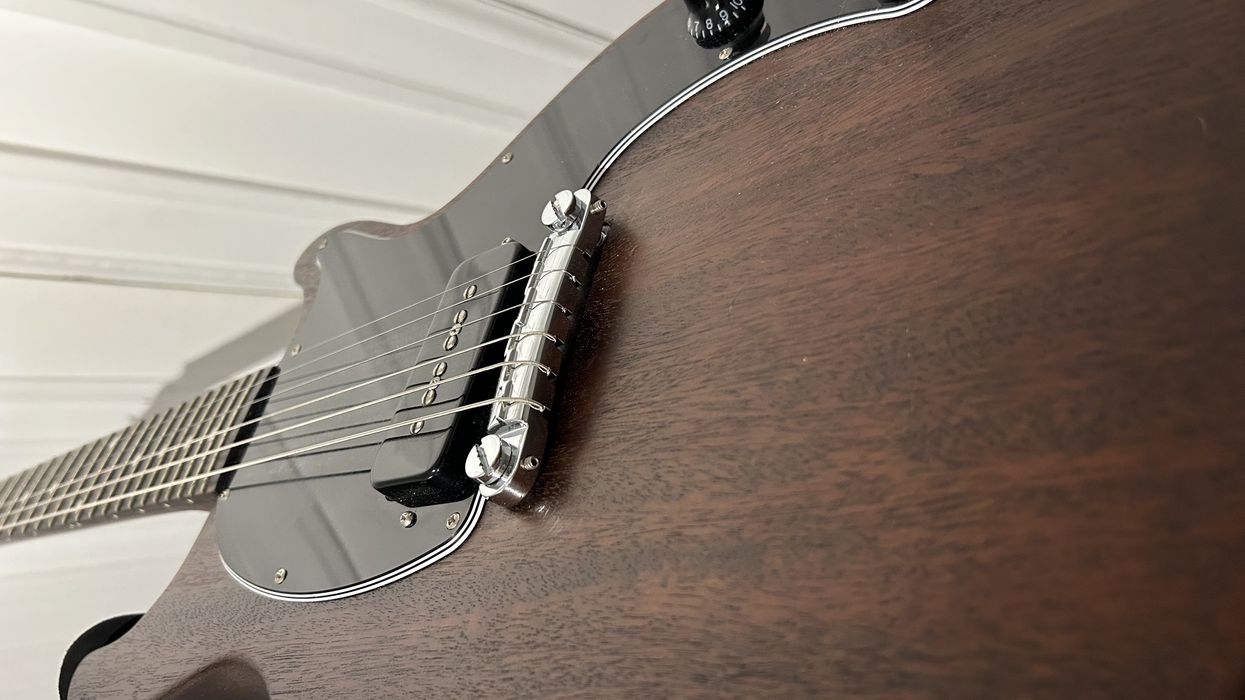
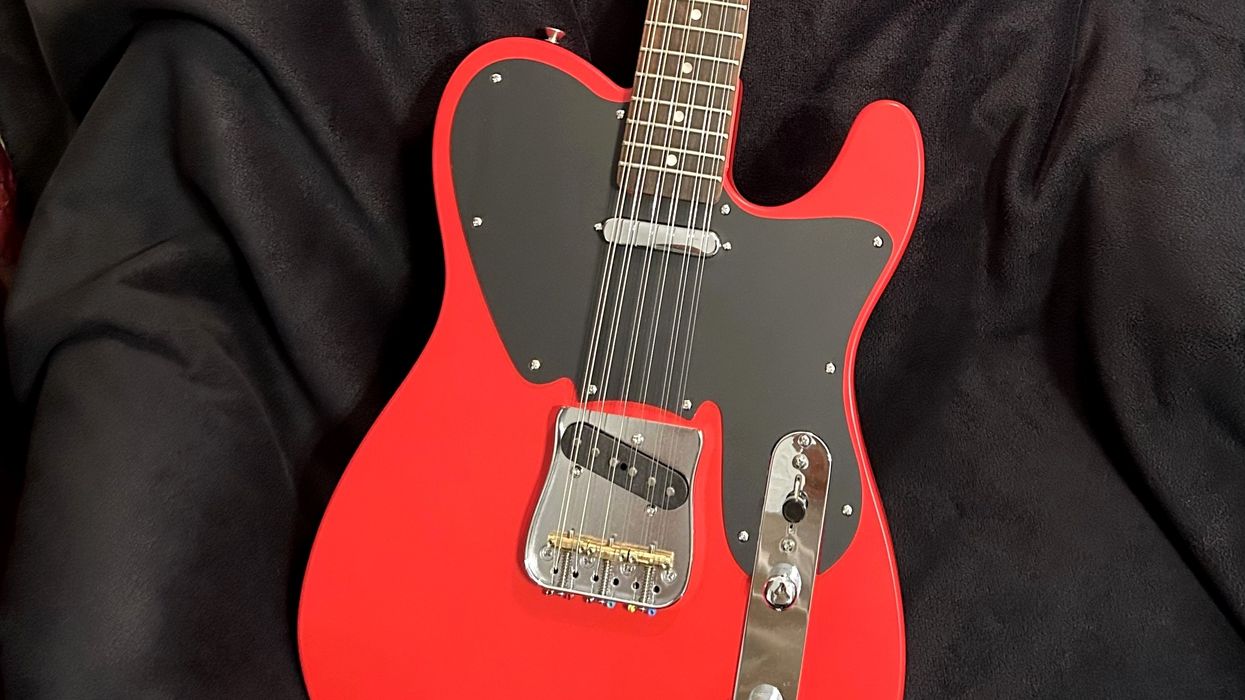

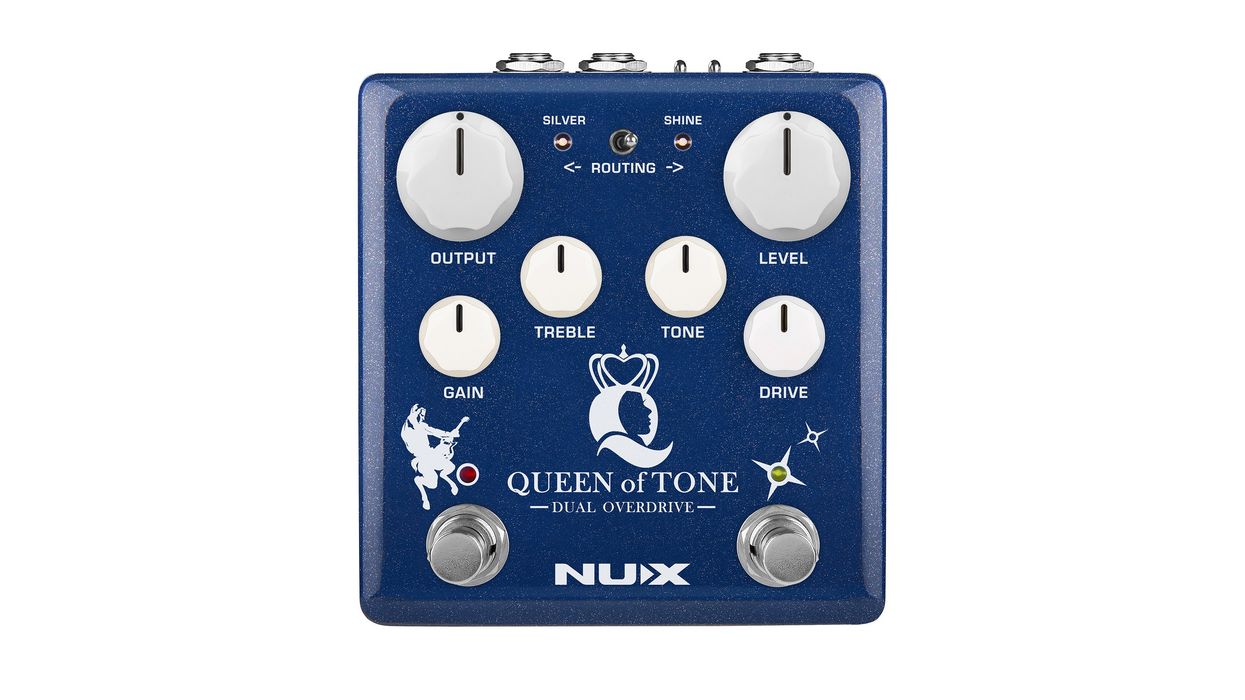
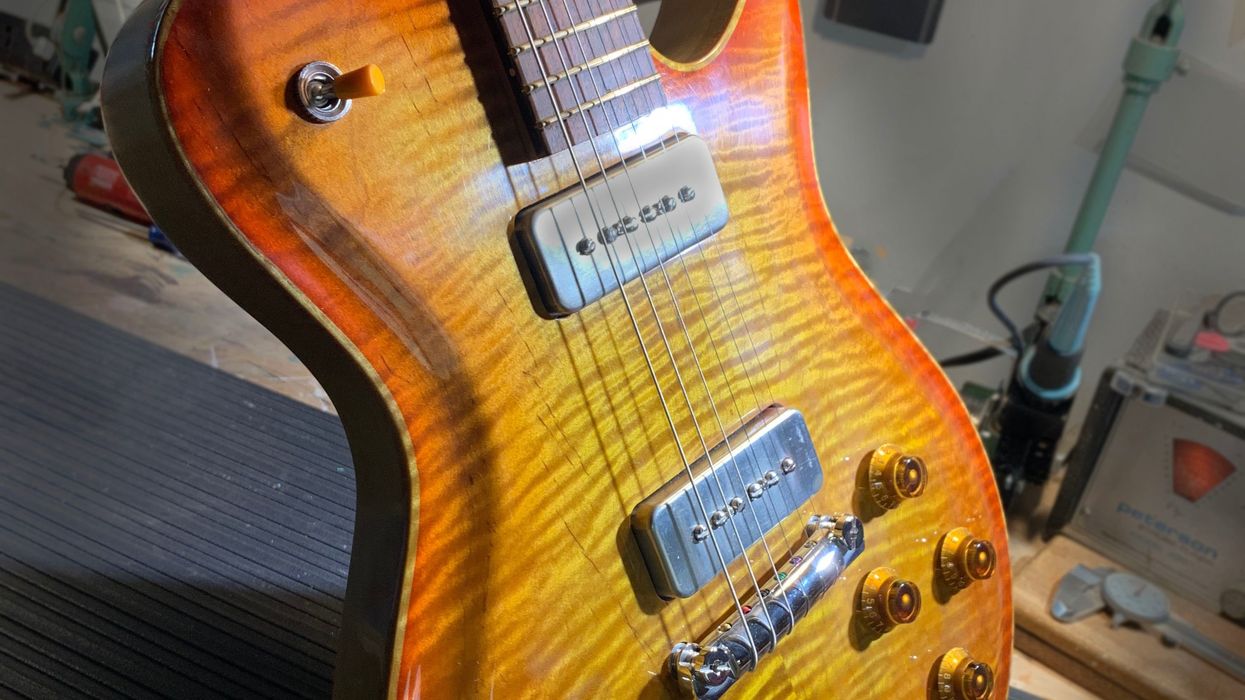
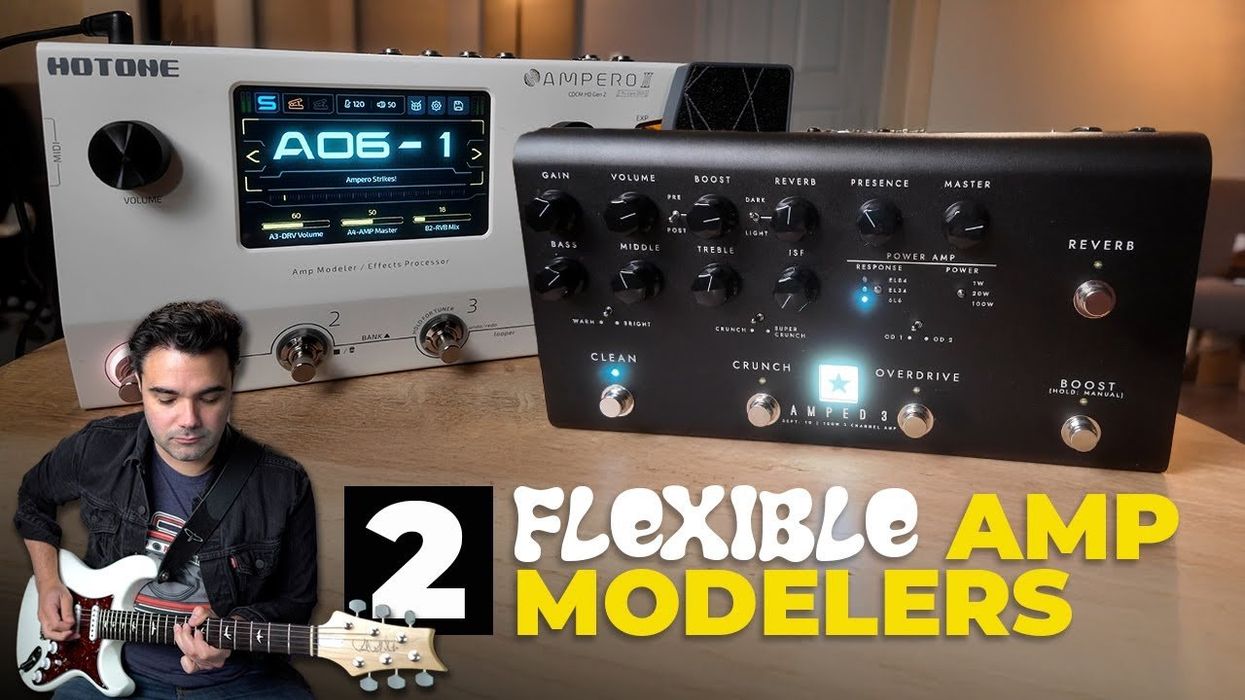



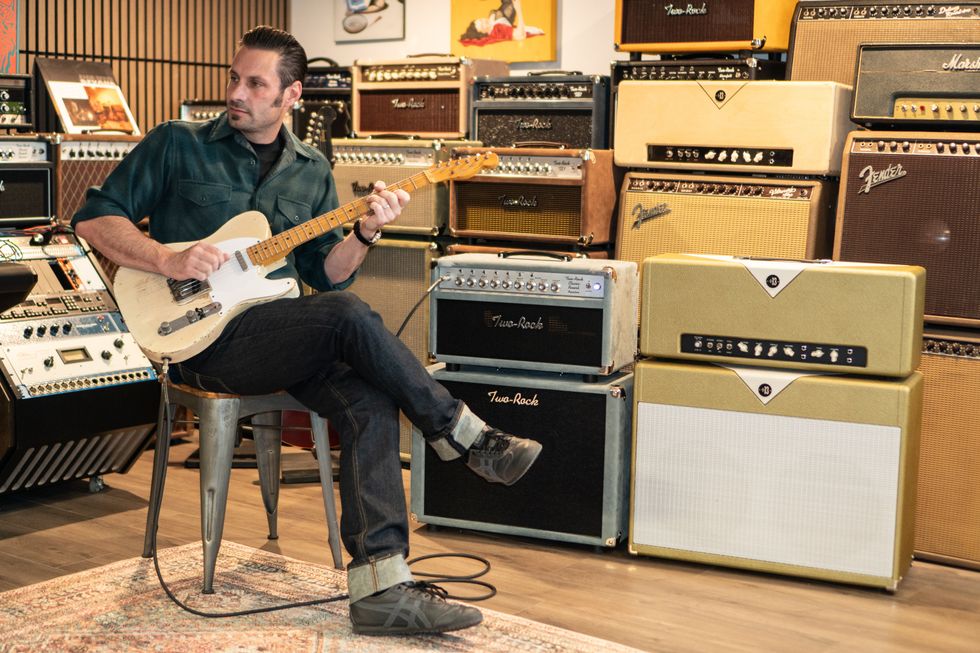
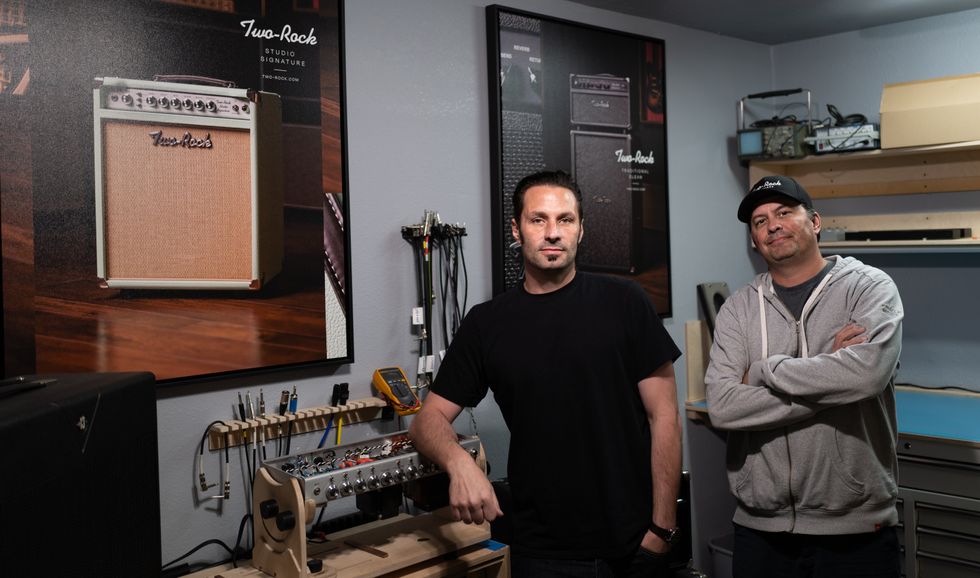
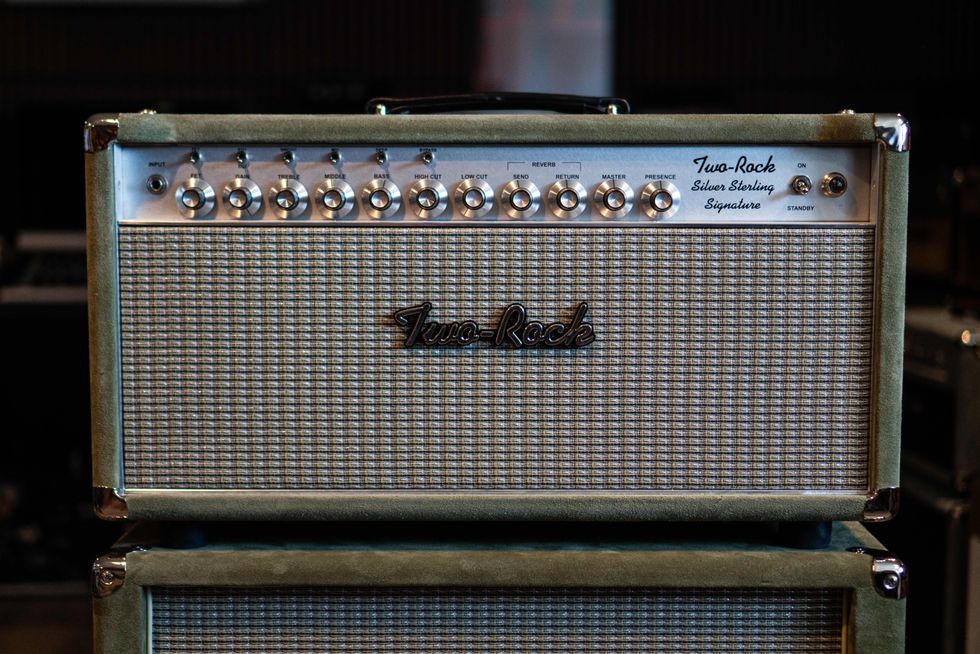
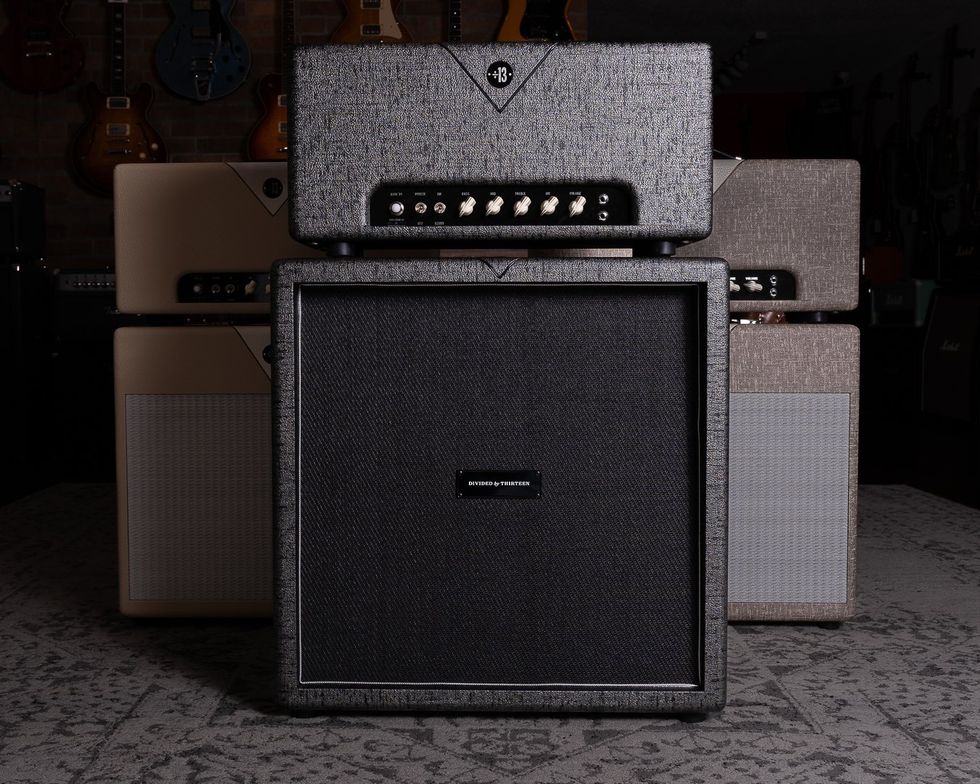
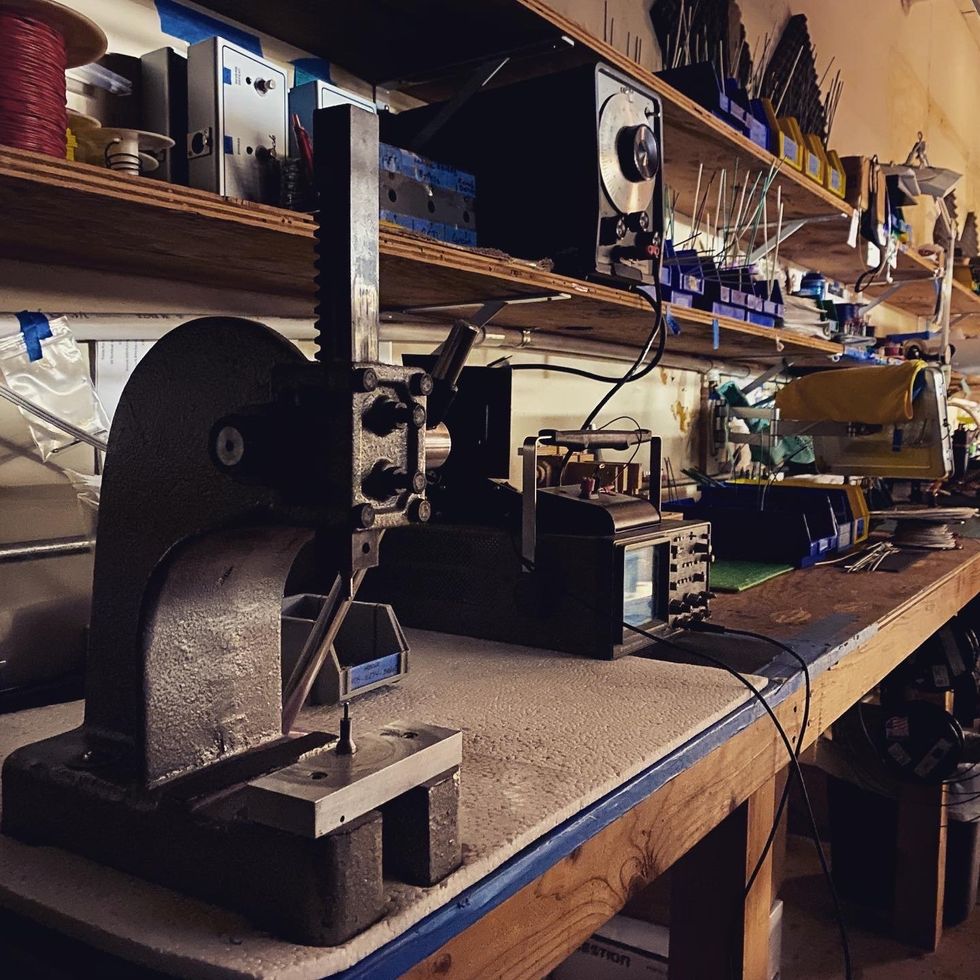
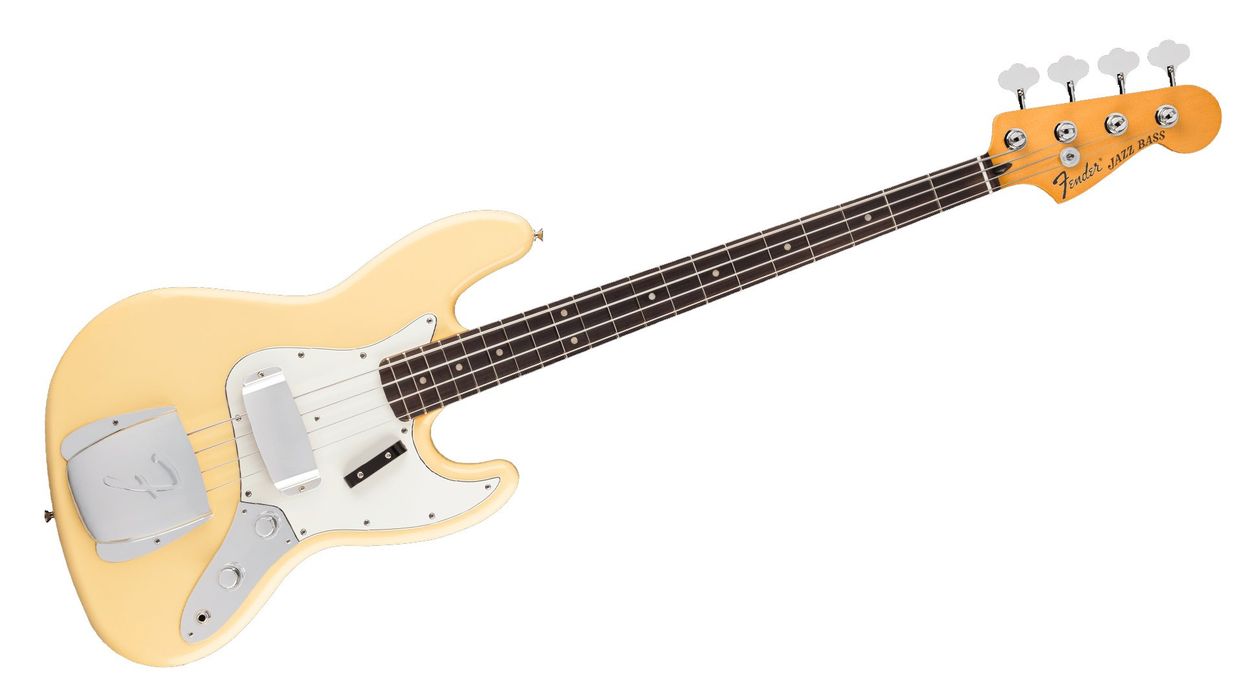

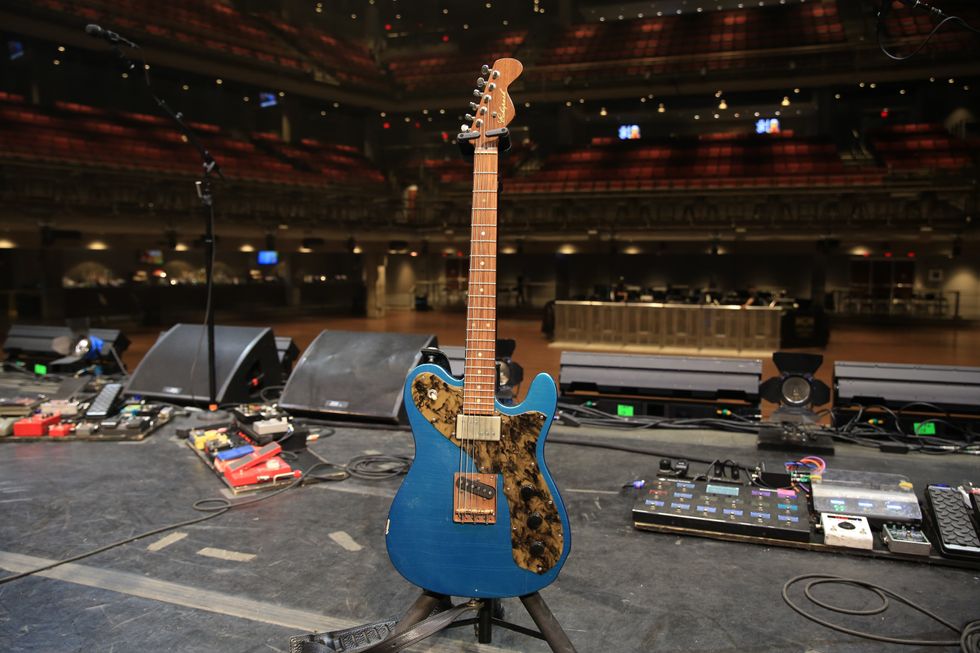 Echopark Shark
Echopark Shark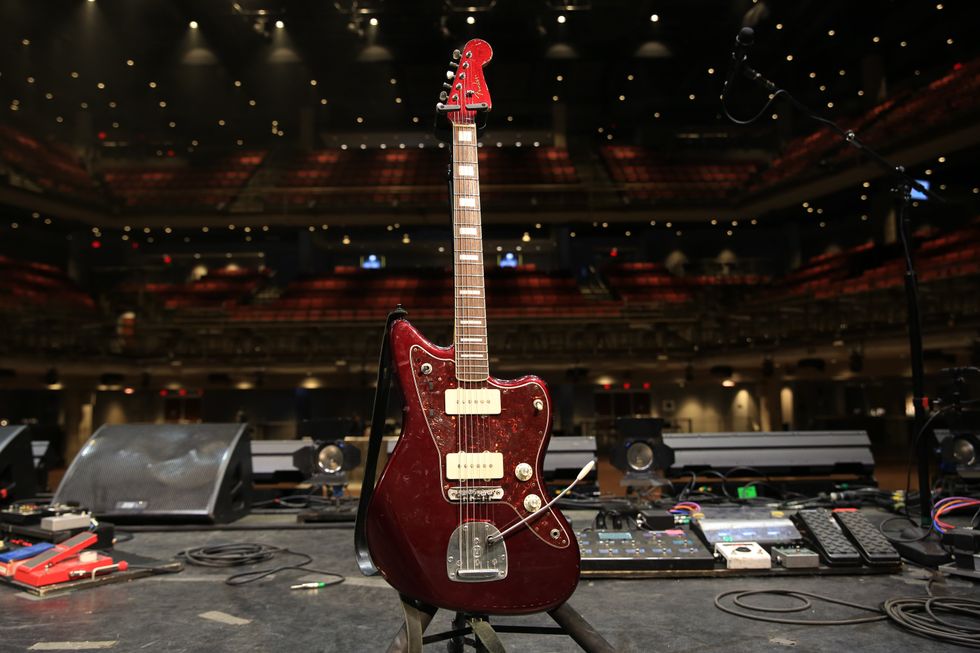 TVL’s RIY (Relic It Yourself)
TVL’s RIY (Relic It Yourself)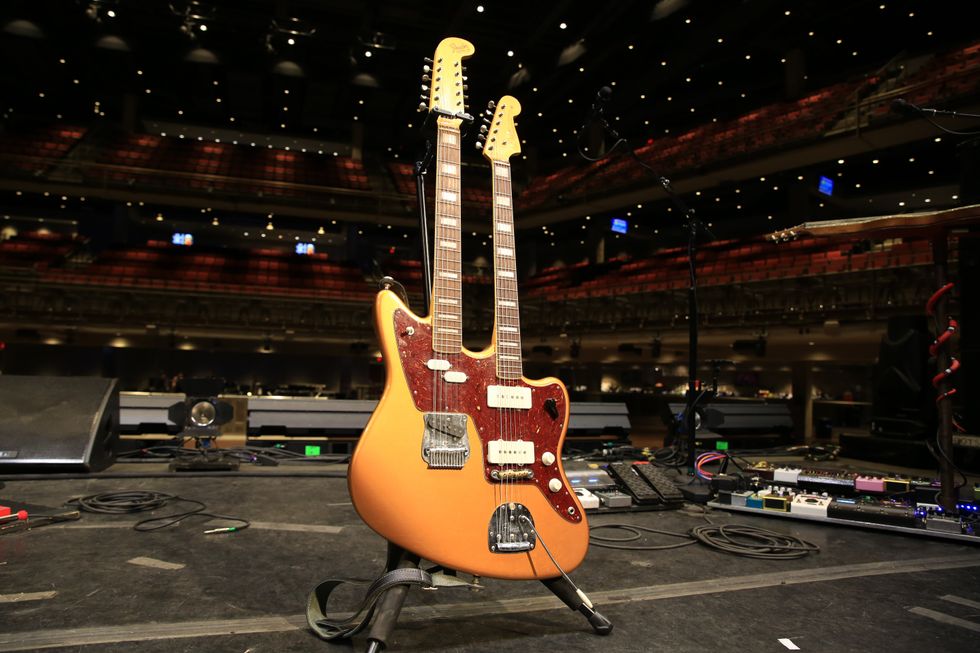 Double the Jazz
Double the Jazz